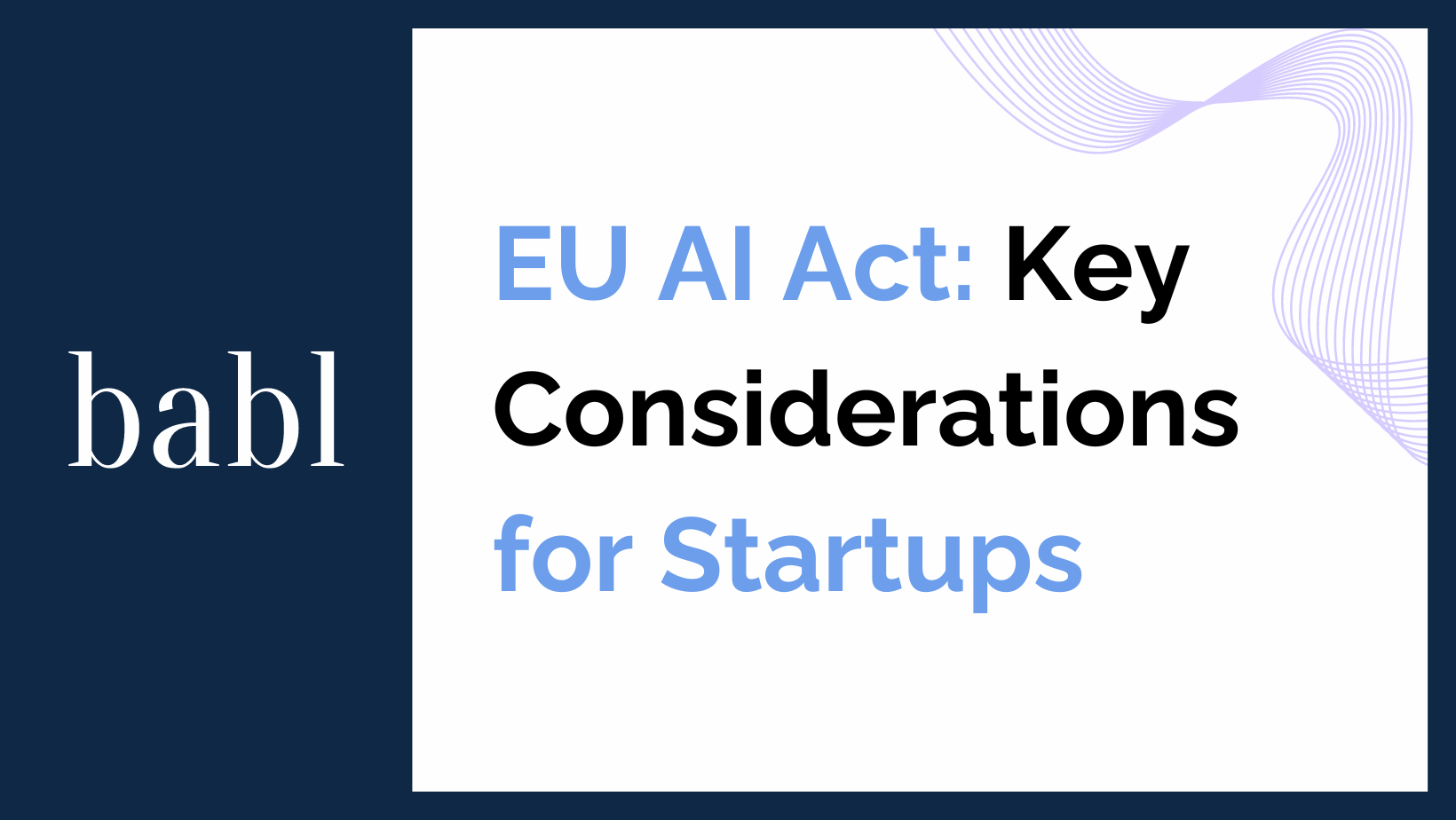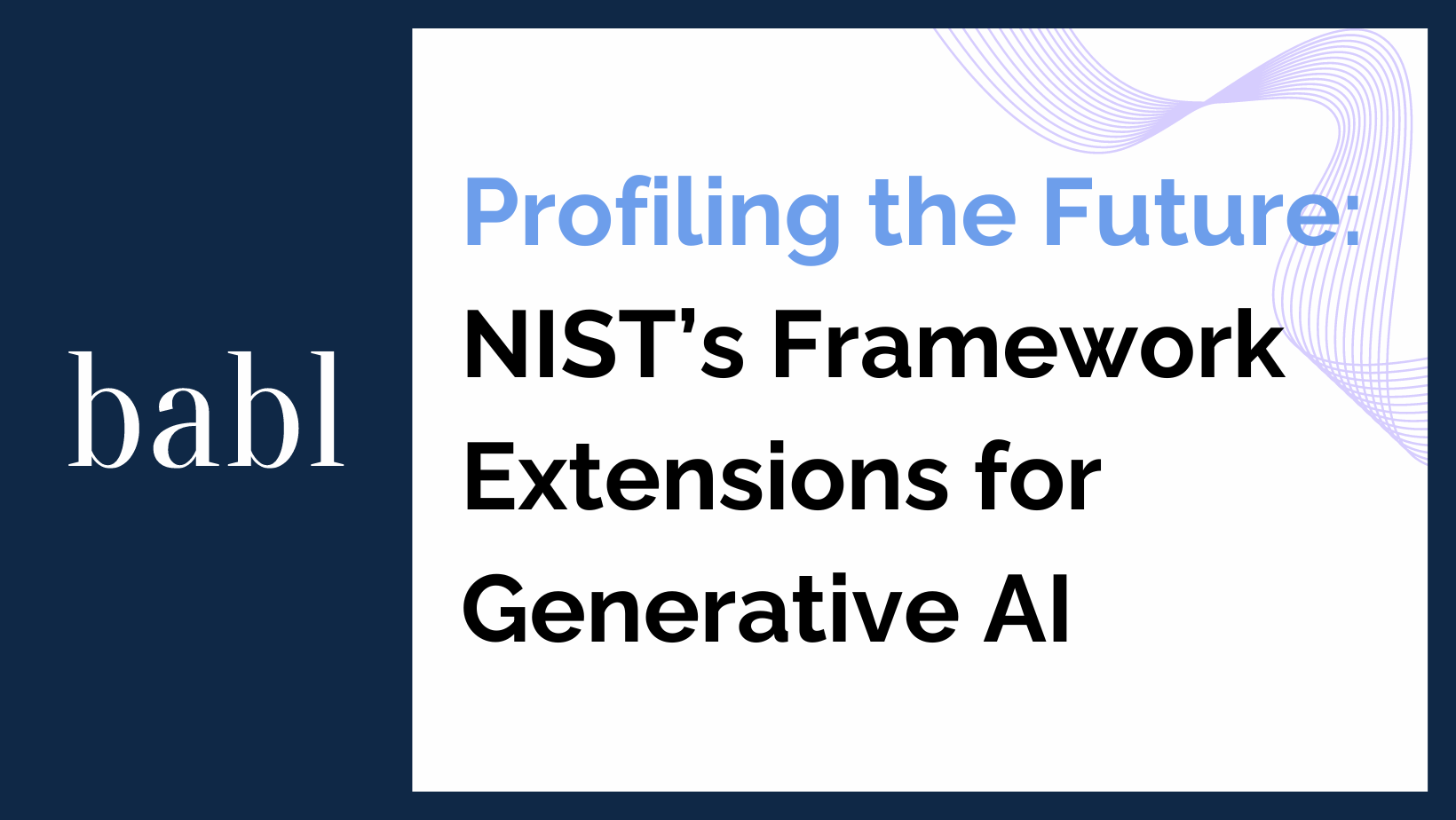The European Union Artificial Intelligence Act (EU AI Act) introduces a comprehensive regulatory framework for AI systems within the EU, aiming to ensure safety, transparency, and accountability while fostering innovation. For startups, understanding the specific requirements and implications of this regulation is crucial for compliance and leveraging the opportunities it presents. This blog will explore the key considerations for startups under the EU AI Act, including differing requirements based on the size, financial capacity, and age of the company.
Understanding the EU AI Act for Startups
The EU AI Act categorizes AI systems into different risk levels: minimal risk, limited risk, high risk, and unacceptable risk. Each category has distinct regulatory requirements aimed at mitigating the potential harm these systems could cause to individuals and society.
High-risk AI systems are subject to the most stringent requirements, including rigorous testing, transparency measures, and ongoing monitoring. These systems are often used in critical areas such as healthcare, transportation, and law enforcement. For startups developing or deploying high-risk AI systems, compliance with these requirements is mandatory.
What are the Simplified Requirements of the EU AI Act for Startups and SMEs?
Recognizing the unique challenges faced by small and medium-sized enterprises (SMEs), including startups, the EU AI Act provides certain simplifications and supports to ease compliance burdens. These measures include:
- Simplified Technical Documentation: Startups can submit a simplified version of the technical documentation required for high-risk AI systems. This aims to reduce the administrative burden and make compliance more accessible.
- AI Regulatory Sandboxes: The Act encourages the establishment of AI regulatory sandboxes, which are controlled environments where startups can develop and test their AI systems under regulatory oversight. These sandboxes provide a safe space for experimentation and help ensure that innovative AI solutions comply with the regulatory requirements before being deployed widely.
- Priority Access and Support: Startups are given priority access to AI regulatory sandboxes and other support measures. This includes guidance on implementing the regulation, help with standardization documents and certification, and access to testing and experimentation facilities.
- Cost Reductions and Financial Support: The Act mandates that Member States consider the specific needs of SMEs when setting fees for conformity assessments. This includes potentially reducing these fees proportionally to the size and financial capacity of the startup. Additionally, there are provisions for financial support and incentives to assist startups in meeting compliance costs.
EU AI Act Risk Management and Compliance for Startups
For startups developing high-risk AI systems, it is crucial to establish robust risk management processes. This involves:
- Risk Identification and Assessment: Regularly identifying and assessing potential risks that the AI system could pose to health, safety, and fundamental rights. This process must be iterative and continuous throughout the AI system’s lifecycle.
- Mitigation Measures: Implementing appropriate measures to mitigate identified risks. This includes technical and organizational measures to ensure the AI system’s accuracy, robustness, and cybersecurity.
- Transparency and Accountability: Ensuring that the AI system is transparent in its operations and that clear information is provided to users about its capabilities and limitations. This helps in building trust and facilitates accountability.
EU AI Act Data Management and Governance
Data is a critical component of AI systems, and the EU AI Act places significant emphasis on data quality and governance:
- Data Quality Requirements: High-risk AI systems must be developed using high-quality data sets that are representative, free from biases, and relevant to the intended purpose. This ensures that the AI system functions correctly and safely.
- Data Governance Practices: Implementing robust data governance practices, including documenting data collection processes, ensuring data integrity, and maintaining clear records of data processing activities. This helps in achieving compliance and enhances the AI system’s reliability.
Addressing Specific Needs of Startups
The EU AI Act acknowledges that startups may lack the extensive resources and expertise of larger companies. To address this, the Act includes provisions such as:
- Standardized Templates and Guidelines: The Commission is tasked with providing standardized templates and guidelines tailored to the needs of startups. This helps simplify compliance processes and ensures that startups can meet regulatory requirements without unnecessary complexity.
- Training and Awareness Programs: Member States are encouraged to organize training and awareness programs specifically designed for startups. These programs aim to educate startups about their obligations under the Act and provide practical guidance on achieving compliance.
What are the Long-term Benefits and Opportunities for Startups as it Relates to the EU AI Act?
While compliance with the EU AI Act may initially seem daunting, especially for resource-constrained startups, the regulation offers significant long-term benefits. By ensuring that their AI systems are safe, transparent, and reliable, startups can build trust with users and stakeholders, potentially gaining a competitive advantage in the market. Furthermore, adherence to the regulation can open up opportunities for funding, partnerships, and market access within the EU.
Conclusion
The EU AI Act presents a balanced approach to regulating AI, combining stringent requirements for high-risk AI systems with supportive measures tailored to the needs of startups. By understanding and leveraging these provisions, startups can navigate the regulatory landscape effectively, ensuring compliance while fostering innovation. The Act’s emphasis on transparency, accountability, and safety not only protects users but also enhances the credibility and marketability of AI solutions developed by startups.
Needing Help?
For startups looking to delve deeper into the specifics of the EU AI Act, or those who have general questions about AI and regulations, don’t hesitate to reach out to BABL AI. Their team of Audit Experts can provide valuable insights on implementing AI.





